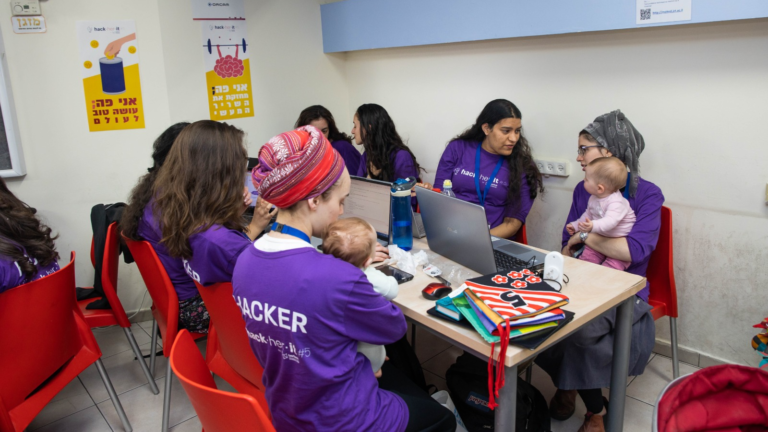Ever since October 7, when Hamas sabotaged Israel’s standard telecommunications systems in order to infiltrate into the country and murder some 1,200 people, high-tech companies have been searching for solutions to enable communication between authorities if standard methods are compromised.
The Take Action program of the Jerusalem College of Technology’s Schreiber LevTech Entrepreneurship Center called on students and alumni to come up with solutions for better practices in an emergency situation.
One unique solution on the civil front comes from LevTech graduate Rami Treistman, CEO of FullStack Systems in the Galilee.
Treistman and his employees developed a web-based automated dialing solution enabling civil defense units to communicate with each other during emergencies without Internet service.
This low-tech ability is critical for times when connectivity is down; for squads comprised of ultra-Orthodox (haredi) Jews, who often do not have smartphones; and for older first responders who may be less technologically savvy.
“This web-based system can instantly send voice messages to one or all of the participants with the push of a button, regardless of functioning internet capabilities,” said Efrat Amitai, a project leader at FullStack Systems.
Treistman tells ISRAEL21c that the system was born out of his own experience as a member of a civil defense unit.
“One night when I went to bed, I browsed through my WhatsApp messages and it took me a few minutes to realize that we’re in the middle of an emergency situation. I decided to develop a system that would not be dependent on the Internet and sends direct messages to recipients that can’t be misconstrued or missed,” he said.
“In some municipalities, these alerts are done via WhatsApp, but this app is dependent on functioning Internet or Wi-Fi. As we’ve seen, that can easily fail or it’s easy to miss messages due to an overwhelmed network or simply human error where people fail to notice a message they receive.”
Nearly 100 kitot konenut (anti-terror first-response teams) and other emergency squads across Israel have subscribed for free to use the product already.
“It’s very old-school technology and that explains why it’s so successful and could be implemented so quickly,” Treistman explains.
“If the person doesn’t answer the phone, the system continues calling until the person picks up and can even bypass a user putting his phone on silent. This frees up the civil defense unit leader to worry about the issue at hand instead of spending his time sending messages and calling people hoping to reach them.”
Treistman tips his hat to LevTech, which provided some resources for the development of the product. “A lot of my entrepreneurship knowledge comes from there — how to make it scalable and establish it as a solid project and not just a prototype.”
















